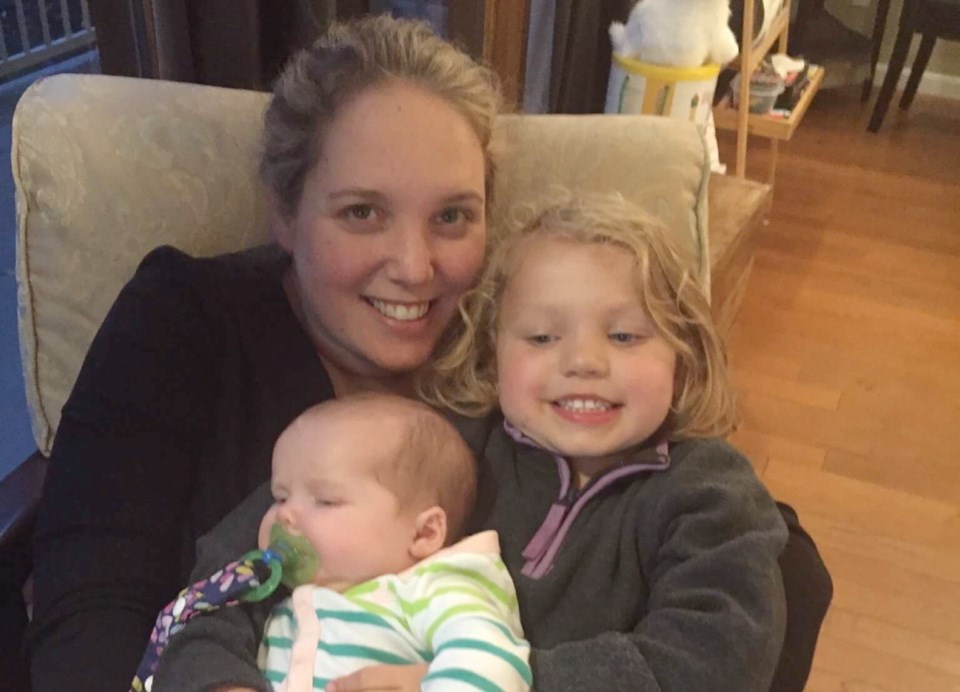DNA testing has become something revolutionary for adults who were adopted as babies or children, often without ever knowing anything about their family or background.
DNA testing can sometimes be the first concrete piece of information an adopted person has ever heard about themselves. That’s powerful.
I was adopted through a private, closed adoption in the early 1980s and never knew anything about my biological family, other than my adoptive parents were told I was Indigenous.
We’ve all heard of the risks of submitting to DNA tests and additional consequences that can occur from uploading the DNA results to sites such as GEDmatch.
If GEDmatch sounds familiar, it might be due to the recent capture of the accused Golden State Killer, who was identified and arrested for murders in the 1970s and 1980s. Joseph James DeAngelo was identified as the suspect through the site, and he didn’t even have any of his own DNA on it. It was DNA of a family member that steered police in his direction.
A couple of months before the news broke of the arrest and law enforcement’s use of GEDmatch, I had uploaded my DNA to the site.
I hadn’t even heard about the site before my friend Danielle West messaged me about it. I had posted on social media about my DNA results, and West encouraged me to enter my info on GEDmatch.
West also works in communications, and we met during a contract a few years ago and then bonded over both of us being adopted.
West has uploaded her results to several sites with the hopes of tracking down family members. She has connected with potential distant cousins through DNA sites and has been building mirror family trees trying to discover relatives and how everyone pieces together.
“Even with the DNA results, it’s still not a magical answer,” said West, who doesn’t know anything about her biological family.
When she received the adoption records she requested: “Everything was blacked out, it was 54 pages of nothing. If people want to know where they come from, they should be able to find out. No one chooses to be adopted,” said West, who was born Dec. 29, 1978, in Campbell River.
West wants to find relatives and create an understanding of her background, and uploading her DNA to sites such as GEDmatch could find the answers she’s looking for.
“My husband has never taken a DNA test; he knows who his mom and dad are. He knows where he’s from. He has no interest in a DNA test,” West said. “I ended up with a pretty fantastic family. It would just be nice to fill in the blanks and round out my story.”
I don’t regret entering my information on GEDmatch, because for me the benefits outweigh the cons, and I think this will most likely ring true for other adopted adults.
My sister Melissa Huber Anderson was born when I was nine. We had the same father adopt each of us. I was raised in Alberta with my adoptive mother and Melissa grew up in Utah with our dad and his family.
Melissa also didn’t have any information about her biological family other than her birth mother was blond with blue eyes and her father was African American. About a year ago, she took a DNA test to get some answers.
Anderson was able to track down family members on each side of her biological parents’ families.
Ancestry.com let her know her friend was actually her first cousin, and that’s how she located her birth father. He didn’t even know he had a child.
She found her birth mother’s information through a maternal grandmother. She was told her birth mother wasn’t ready to connect; she was raising a family who didn’t know she had a baby in her teens.
“The thing I learned from all of this is you can’t keep secrets, people need to own their actions,” Anderson said. “It might have been a mistake a long time ago, but now there’s a person out there.”
DNA technology is getting so advanced that we can’t hide from it. Families who placed children for adoption are being found through DNA testing sites, whether they want to be found or not.
Charla Huber works in communications and Indigenous relations for M’akola Group of Societies.



